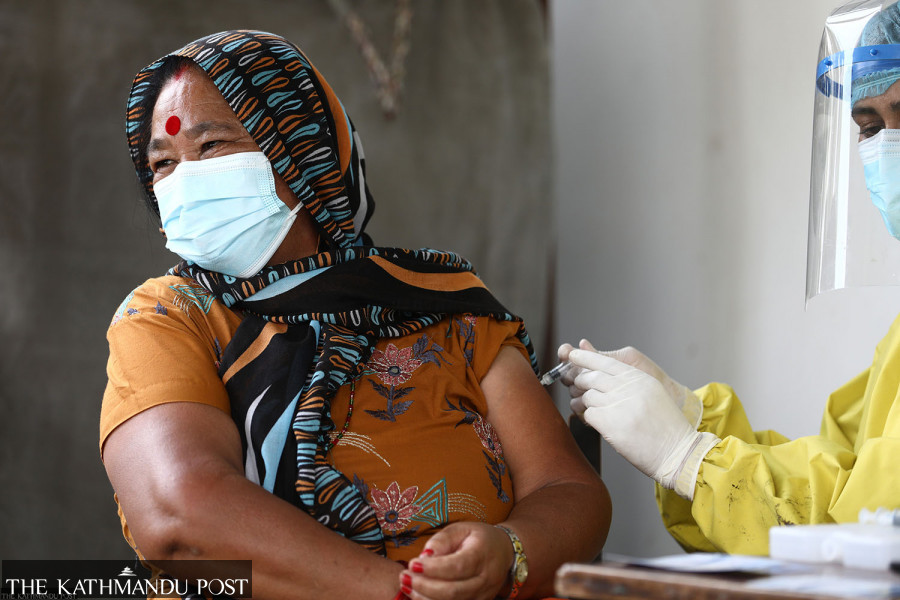
Nepal launched its Covid-19 vaccination campaign on January 27. Post File Photo
The Maldives is sending 201,600 doses of AstraZeneca Covid-19 vaccine to Nepal.
Officials at the Ministry of Health and Population said that the vaccine is scheduled to arrive by Saturday.
“The Ministry of Foreign Affairs has informed us that the doses may arrive on Friday,” Dr Bibek Kumar Lal, director at the Family Welfare Division, told the Post.
“Our Embassy in Sri Lanka is coordinating to bring the jabs.”
The Maldives does not produce Covid-19 vaccine. The Island nation is supplying surplus jabs that are about to expire.
Earlier, Bhutan had supplied 230,000 doses of surplus AstraZeneca type vaccines.
The doses had around one week of expiry date when they were delivered to Nepal.
“Our government has to bear the transportation cost and we do not have to charter a plane this time as the vaccine is arriving via a cargo flight,” said an official at the Health Ministry.
Switzerland and Canada have also offered Covid-19 vaccines to Nepal. According to officials at the Health Ministry, Switzerland has offered around 100,000 doses.
Nepal on Wednesday received 1.02 million doses of Vero Cell vaccine purchased through COVAX’s cost-sharing mechanism.
The vaccine is part of over 5.9 million Covid-19 vaccine doses the country has purchased using a loan from the Asian Development Bank.
Nepal so far has used AstraZeneca vaccine manufactured in India, Japan and Europe; Vero Cell vaccine developed by Sinopharm of China; and the single-shot Janssen made by Johnson & Johnson in the United States.
Nepal had launched its Covid-19 vaccination campaign on January 27 with the 1 million doses of Covishield, the AstraZeneca type vaccine manufactured by the Serum Institute of India.
Altogether, the country has received 19,978,210 doses of Vero Cell, AstraZeneca, Janssen and Pfizer-BioNTech vaccines.
As of Thursday, 6,865,665 people (22.6 percent of the total population) have been fully vaccinated, according to the Health Ministry.
Nepal needs to vaccinate around 78 percent of its 30 million population—or around 25 million people—as per the government’s new plan that includes vaccinating all those aged between 12 and 18 years. The government earlier had planned to vaccinate only those aged 15 years and above.
Since around 4 to 5 million people are estimated to be living abroad, the government needs to vaccinate around 19-20 million people. For this, the country needs a little over 40 million doses of double-shot vaccines.













